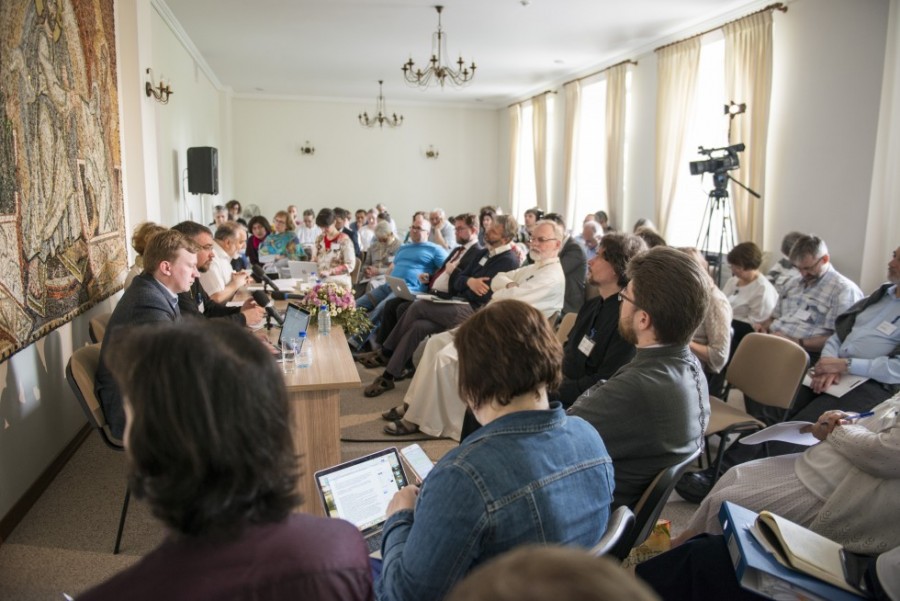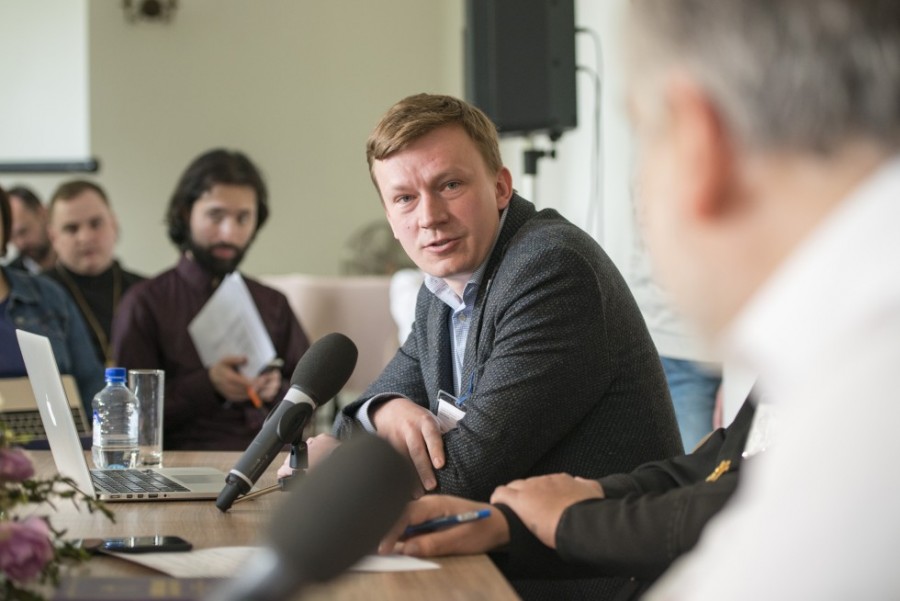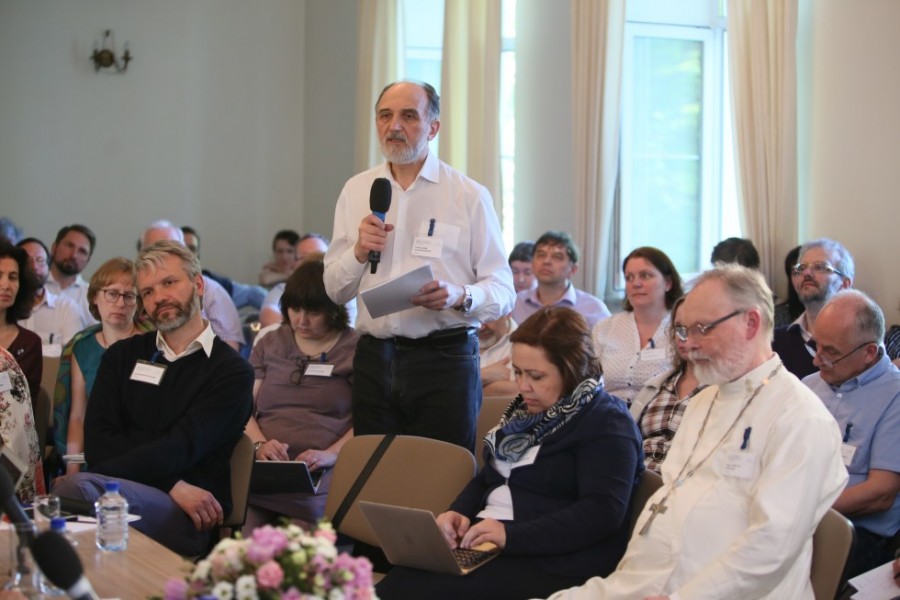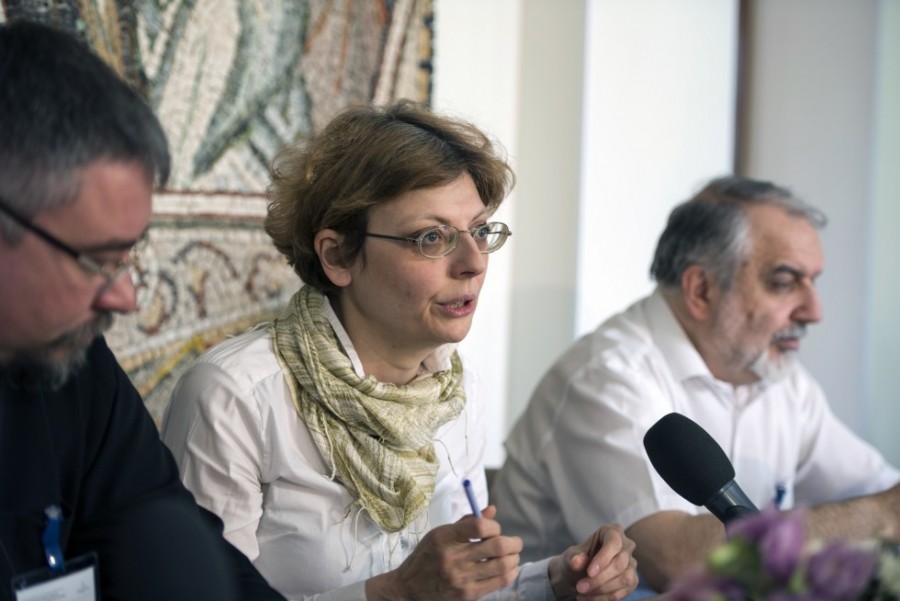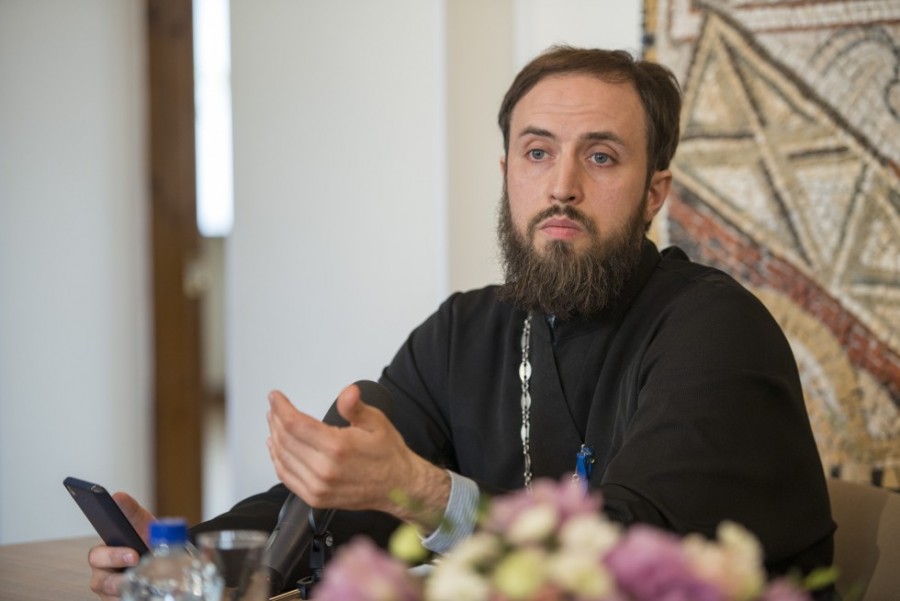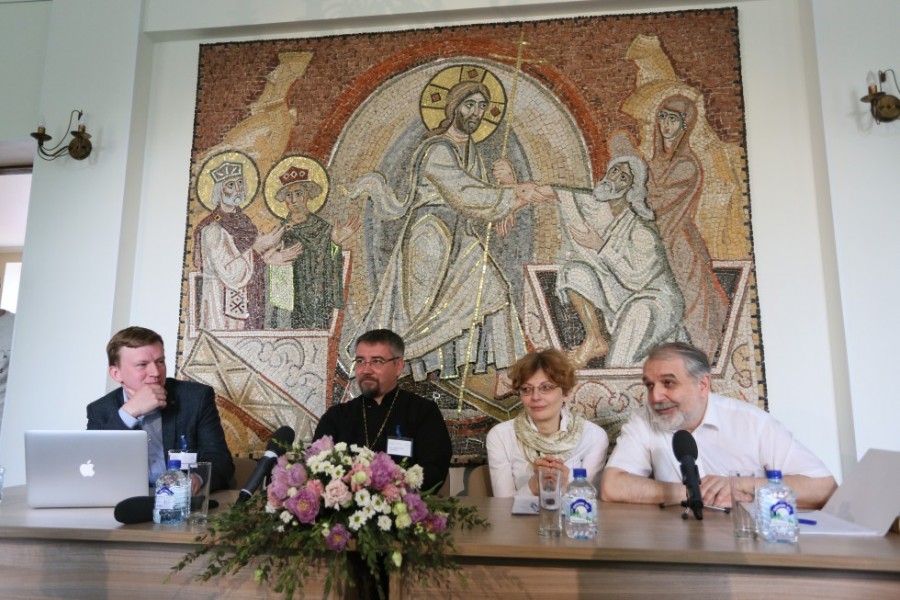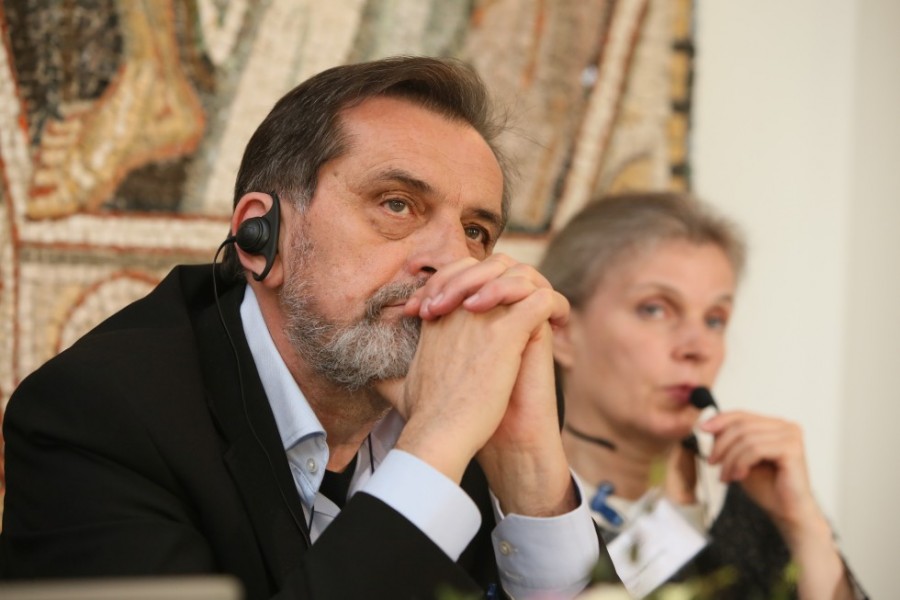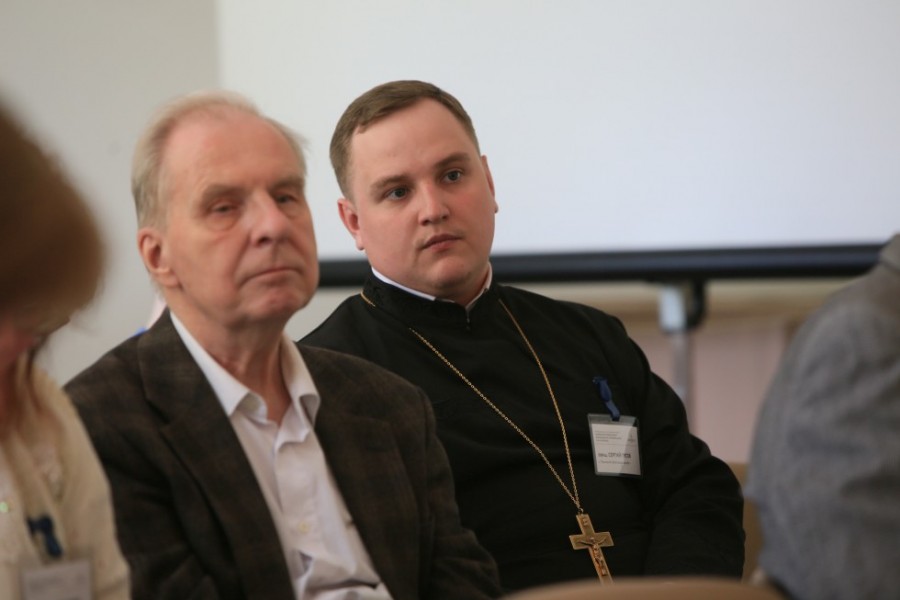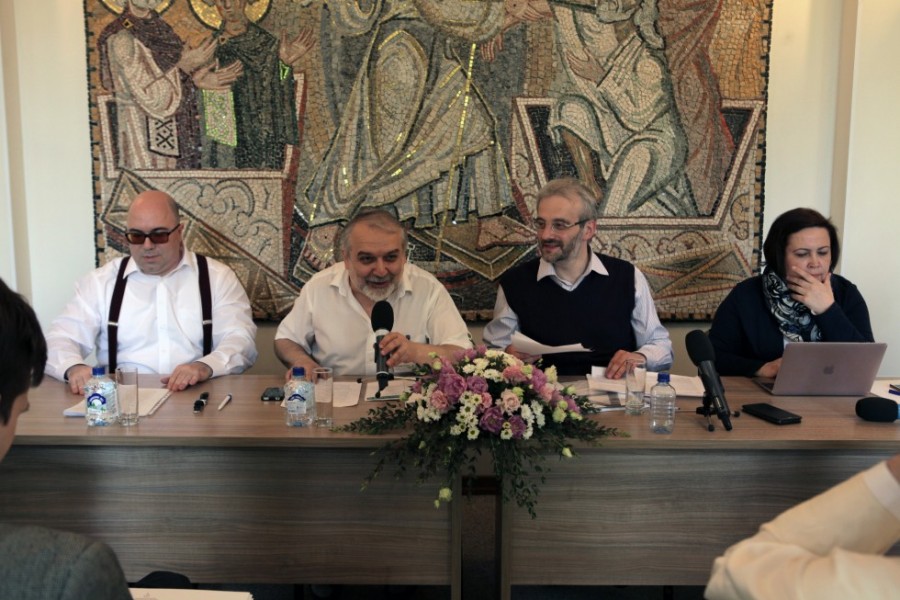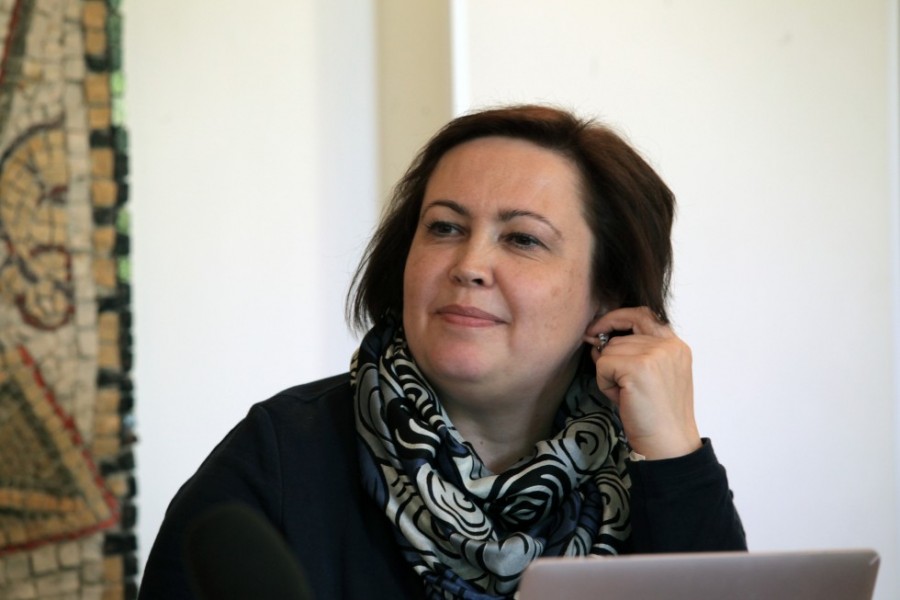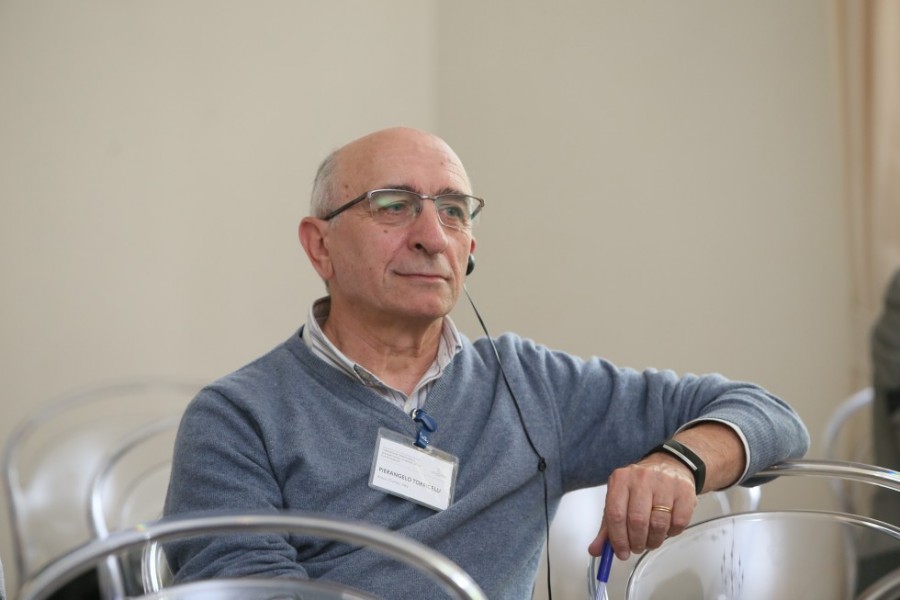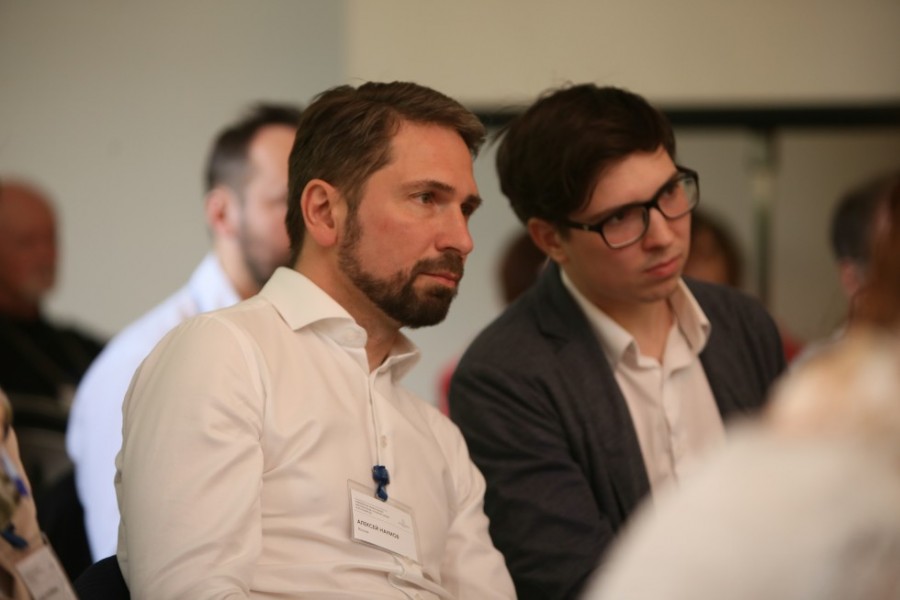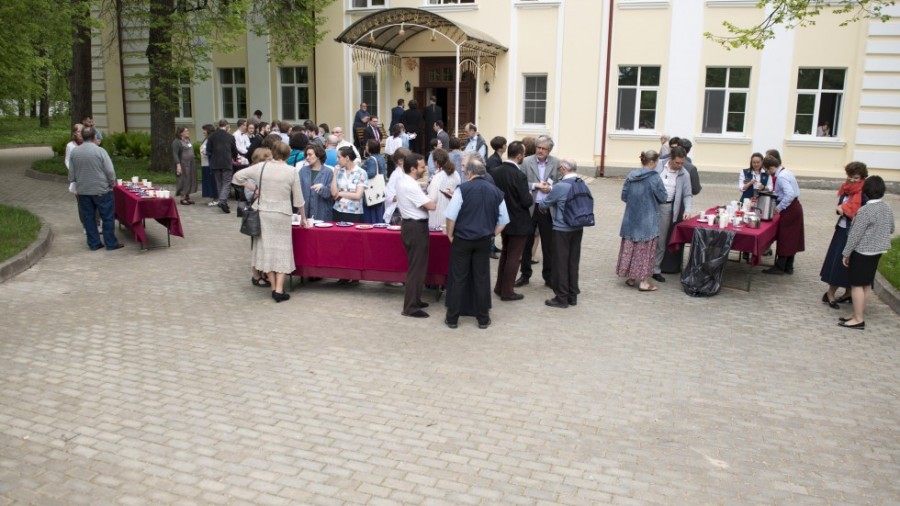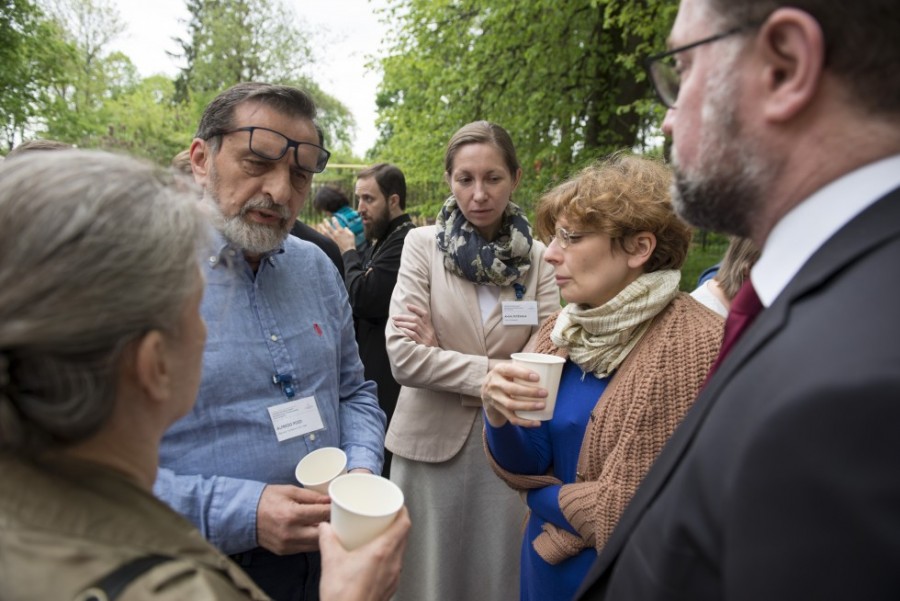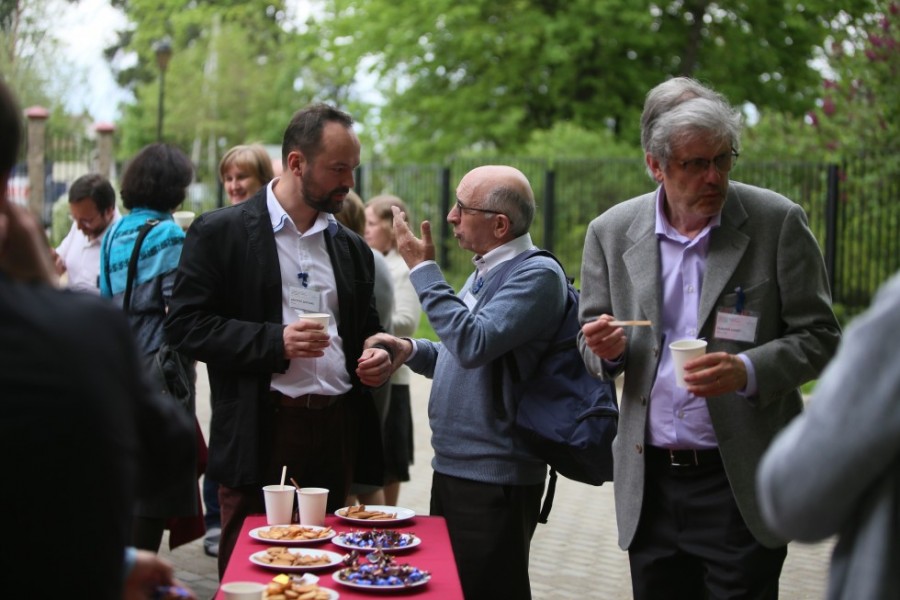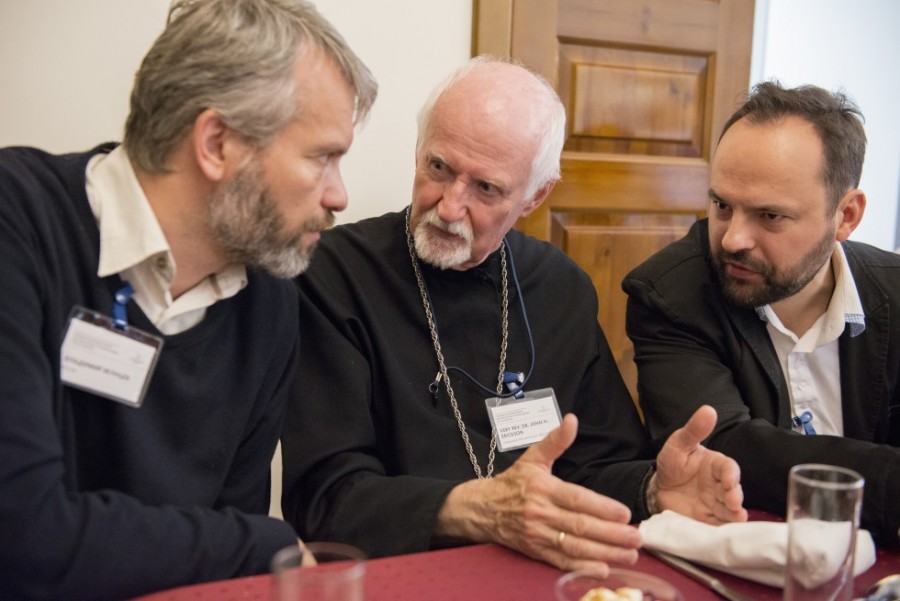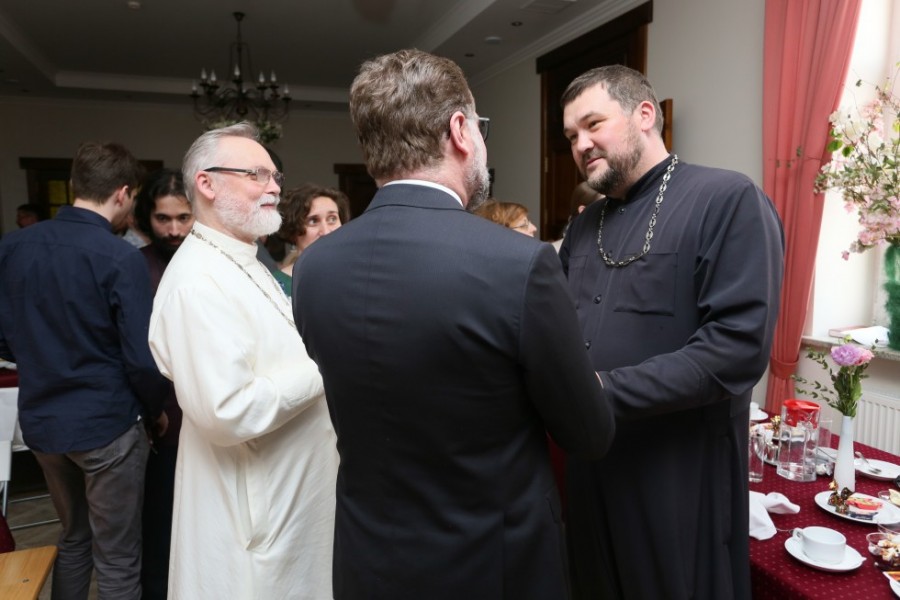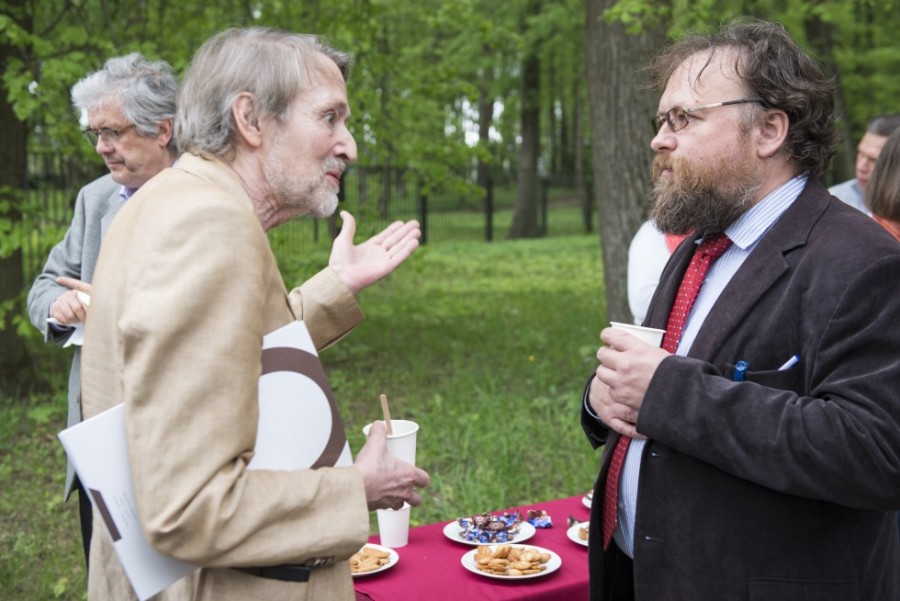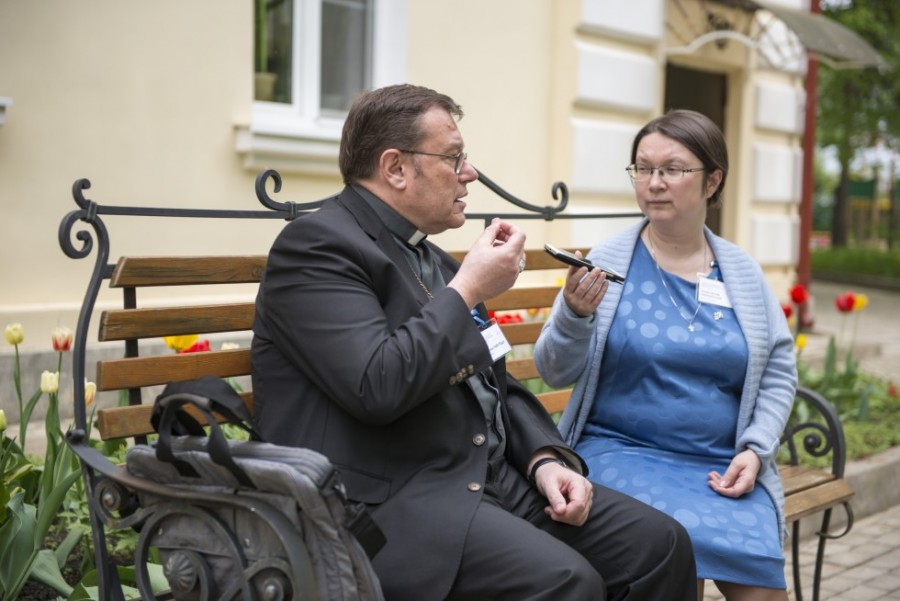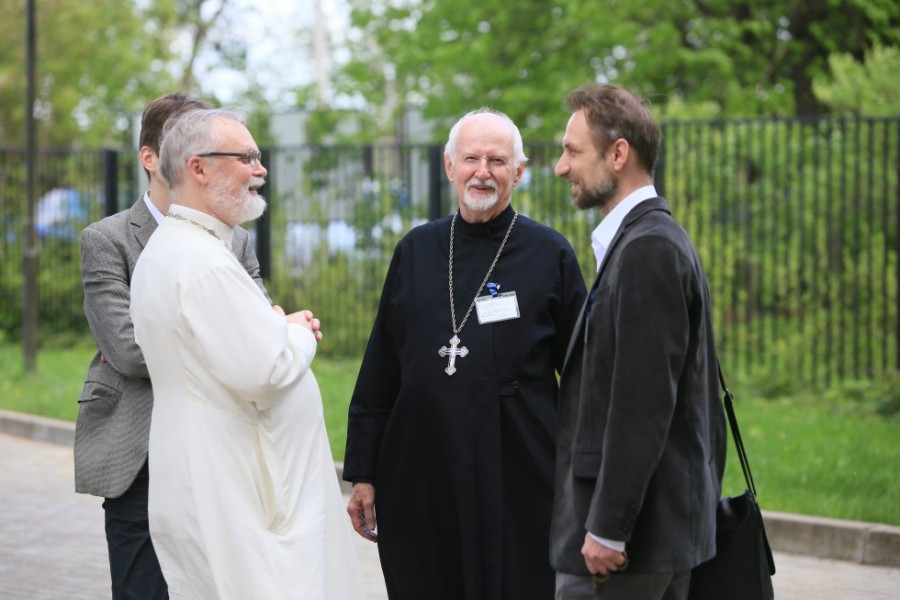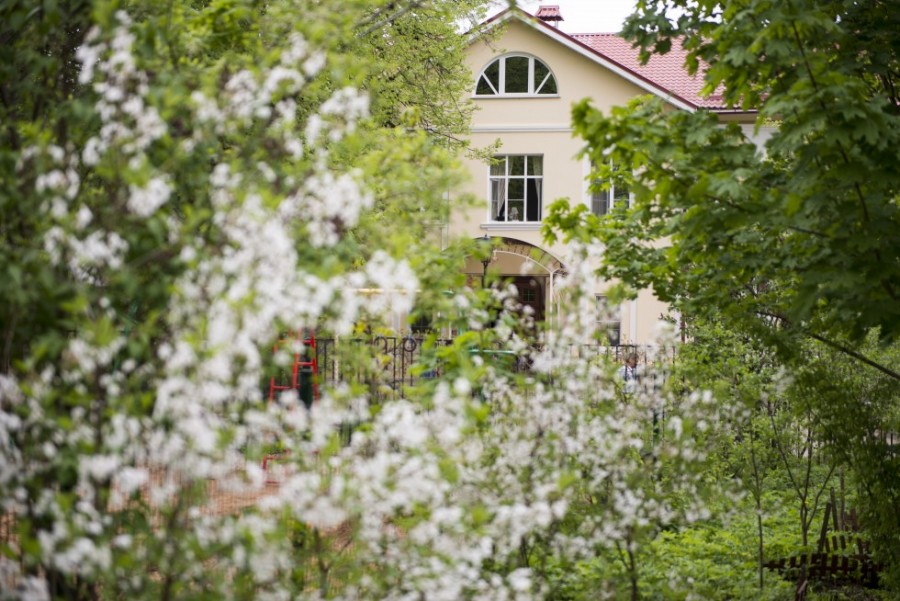The Church is Made of Faith
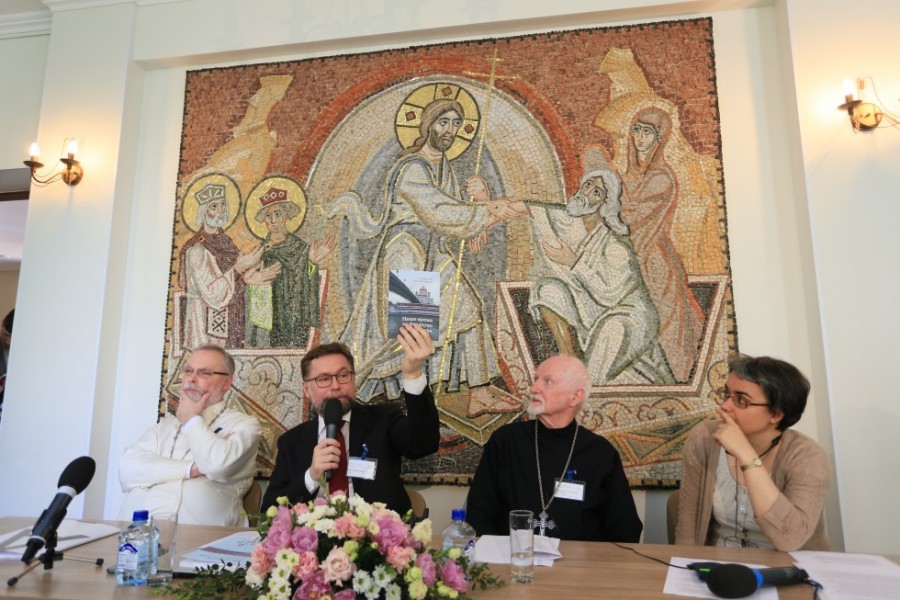
The question of exactly “what the Church is,” is no less relevant and pressing for the church herself today than it is for secular society, which can’t seem to find a place for the church in its system of coordinates. What is it? A social organization that helps the poor and the sick? A funeral service provider? An ideological department of the state government? A club for the virtuous and a moral policeman?
Few would immediately guess that the Church is a group of people, gathered together in Christ for common life and service to God and neighbour. Something has happened to Christian consciousness itself, which seems to reject service in favour of searching for some use, comfort or even miracles in the church.
The participants of the recent SFI conference held under the rubric “Modern Orthodox Ecclesiology: The Church’s Service and Her Structure” endeavoured to discern the Holy Spirit’s ongoing renewal, and that which is currently being flushed out of the tradition within church life.
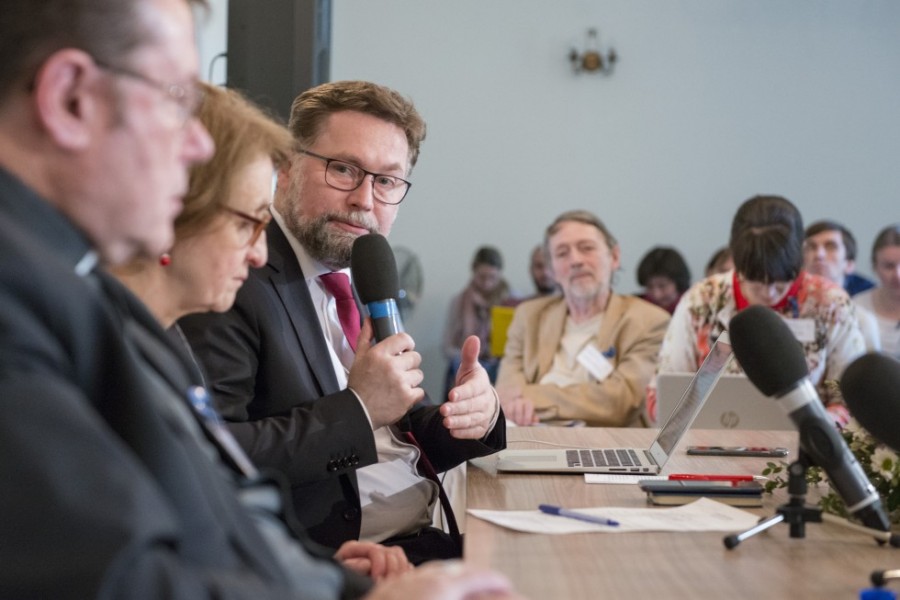
“We chose a theme which brings together two important aspects of church life,” said SFI Vice Rector, Dmitry Gasak, “and we wanted, first and foremost, to speak about the unified service of the Church, which permeates the entire Church, given that she is a living, divine-human organism.”
Faith under Suspicion
The 20th c. was one of the richest in terms of creative gifts and examples of sacrificial life, and the most catastrophic and aggressive against the effective operation of spirit and meaning, as totalitarian regimes and obscurantist mass culture ruled the day, mercilessly blotting out and masking the theological and philosophical revelations, thought and holiness of the new martyrs and confessors of the faith.
But breaking through to the achievements and intuitions of these holy people of the 20th c., we discover that in our current age they don’t seem to be able to get any traction. An ecumenical persuasion, the active participation of laypeople in church life, a new perspective on history, liturgy and dogma, as well as the first serious works on Christian anthropology and ecclesiology, remain in the realm of speculation and have almost no effect on church life.
The 20th century’s real and serious revelation of Eucharistic ecclesiology, which insists upon common and shared service for Christians as the people of God – seems today to imply nothing more than individualist piety, even in those places where people strive to embody it. The election of hierarchs and clerics, in those rare instances in which it takes place, is not leading to the manifestation of prophets and elders in the church. Community – when and where that word is employed, isn’t thought of as a family of friends in Christ, but as a club of people with good morals, each living his own life. Such a church isn’t convincing even to itself, and as for the rest of the world, she remains, for most, just a place where mysterious rituals take place, or a place of orthodox psychology, flavoured with asceticism and traditions from ancient times.
As soon as a person coming to faith or walking in faith endeavours to really come into the space of the church seriously, if the space doesn’t simply repel him, it often isn’t solid enough to help him withstand the trials of life, and turns out to be powerless in the face of life’s complexities and contradictions. The life of a faithful person doesn’t get stronger or more joyful in the church, and the “thirst” of the seeker isn’t quenched. The usual explanation for such a state of affairs is that we are very sinful and need to repent, work, have patience – i.e. pay for our own and each other’s sins until the day we die.
What is missing from this picture is a vision of faith as a gift of God and as a force which brings people together into the Church, providing unity, allowing people to live according to their consciences and in fellowship with each other, in an entirely new quality of life. It is faith in particular, and openness to God – the thing which takes a person out from under the power of this world and that which makes the gathering a “church” gathering. This very thing doesn’t seem to be taken seriously by the church corporation, and is repelled and shunted aside as an ephemeral and unreliable principle. At best, priority is given to the external trappings of church: more or less appropriate behaviour, loyalty to hierarchy, going to church often, participation in the holy mysteries and making generous donations.
When does it become Church?
“When we try to discern what the Church is and form some sort of an image in our minds, we have to remind ourselves that the Church isn’t some external object that we can think about,” says Dmitry Gasak. “The Church is that which we ourselves see and the judgements we make from within, if we share in her life. This is the position that Khomyakov insisted upon, and it presupposes both knowledge about the Church and faith in the Church. Without faith in the Church, teaching about the Church can’t exist.”
It makes sense to look at Eucharistic ecclesiology from such a perspective, i.e. not only as a theological construct, but as the subject of the faith of Fr. Nikolay Afanasiev and those close to him in spirit, and their intuition that reflected the Holy Spirit, upon whom they waited expectantly. The reconstruction of the ancient church that Afanasiev created poses some key questions with regard to the church gathering. Where are its borders? How is it made manifest beyond the borders of the church service? How is its unity preserved? How does the gathering discern various gifts of the spirit for different types of service, such as witnessing, prophecy, teaching, and management? How are these then employed?
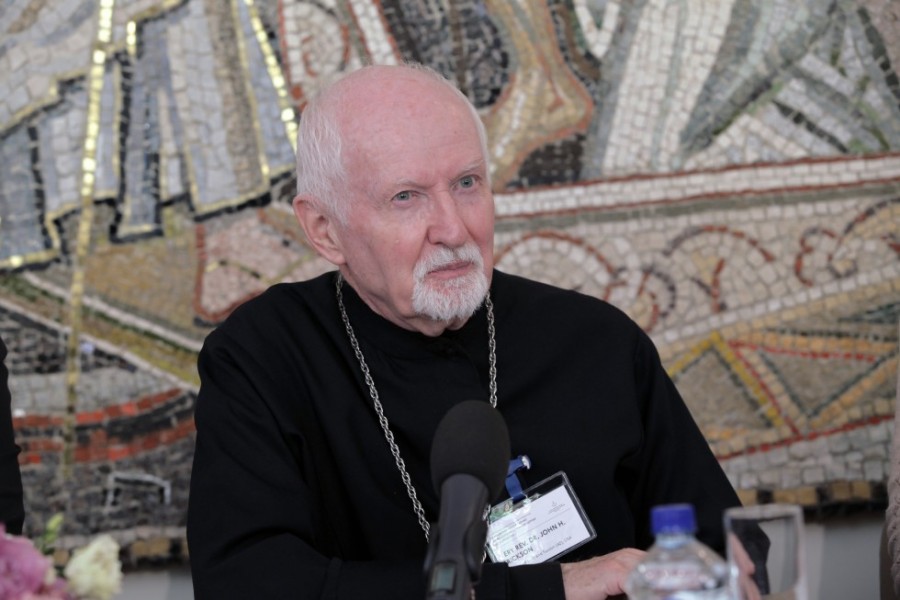
In the opinion of Professor Emeritus of St. Vladimir’s Orthodox Seminary, Fr. John Erickson, Eucharistic ecclesiology, the precursors of which Fr. Nikolay Afanasiev found in the 2nd and 3rd centuries, takes up the most important ideas of the Slavophiles and theologians of the 20th c., as they relate to sobornost and the union of Christian believers. At the same time, the question as to whether it fully takes into consideration the radical changes that have occurred in the world, the human person and the church over the last hundred years, remains open.
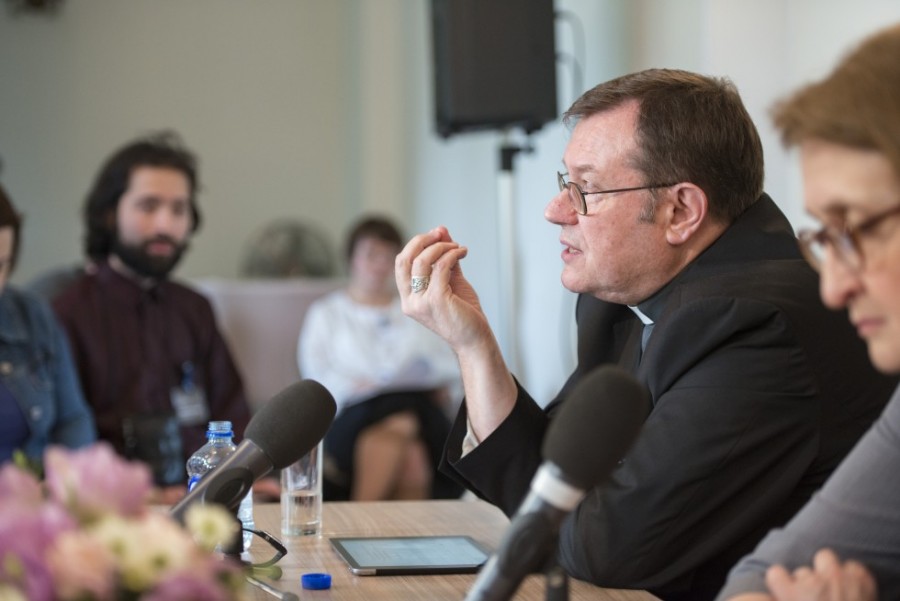
Today, as Archbishop Paolo Pezzi, Metropolitan of the Moscow Archdiocese of the Roman Catholic Church notes, “Christianity itself isn’t entirely obvious, and doesn’t perpetuate itself through the force of habit, rituals and common practice. We need again to tell people that there is a God and that He answers the earnest calls of the human heart.” Only the people who hear and accept that answer will be members of that Church of the faithful, about which Afanasiev wrote.
“In the first centuries of Christianity’s existence, no one ever thought that the church would become church upon gathering for the liturgy or when helping the poor,” says Fr. John Erickson, quoting theologian Aidan Kavanagh. “Everything started with the healing process of catechesis, when a person’s faith would fill to overflowing with strength, providing him with the possibility of being in union with other people who lived in the faith – growing from the point where they are today, to what they can become together, in Christ.”
In the end, it is faith that makes a person faithful, and not weekly communion, which can often come down to a symbolic remembrance of the Last Supper. “When Jesus asks his disciples, ‘Can you drink of the cup that I drink of?’”, says Fr. John Erickson, “by the cup, he means not communion, but the whole Cross as a chosen path, martyrdom, and victory over the world by the same power with which He overcame the world.”
When Christ is Hidden
In trying to answer questions and resolve various contradictions that Eucharist ecclesiology leaves us with, central among which is the question of how the church gathering comes to be, Fr. John Erickson proposes that we focus first upon being born in the faith, i.e. on how a person changes from someone who walks in the “way of the world”, into a faithful disciple of Jesus Christ. Fr. John calls his idea “baptismal ecclesiology”, understanding “baptism” in the widest sense of the word, not only as a liturgical ritual, but as the process of enlightenment in faith unfolding to fill a person’s whole life – the process which is the foundation of Christian service for all believers.
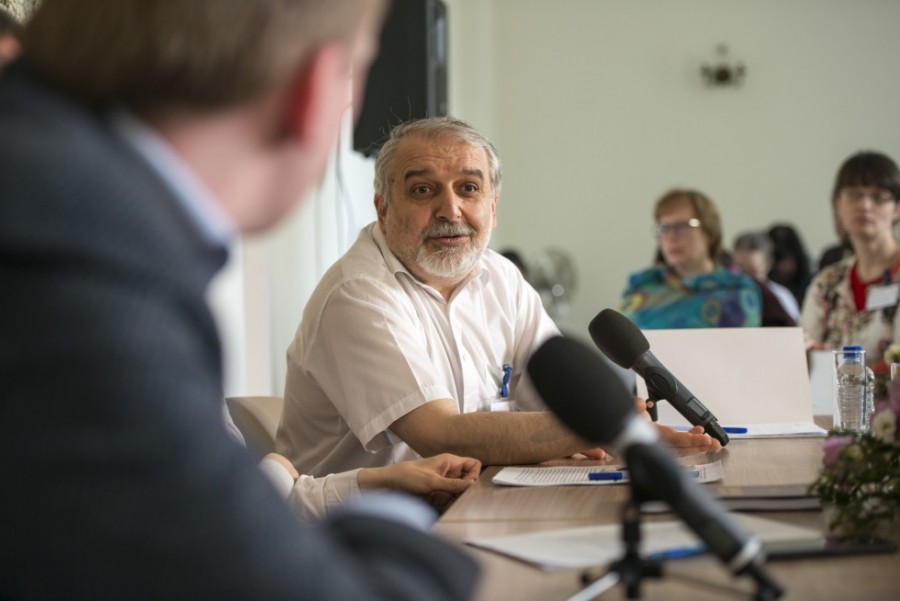
The way in which the church understands its service to the world will, to a great degree, determine its form and structured order. “The action of the main gifts of the spirit should produce a certain order in life, ‘the order of love’”, says David Gzgzyan, Head of the SFI Faculty of Theology and Liturgics, and member of the Inter-council Presence of the ROC. “The Church could hardly reject an order determined by Christ’s love for its life. But the priority of love also means the acceptance of extreme risks.”
A rejection of these risks, which happens when the church’s existence springs from a logic of self-preservation rather than of self-giving, causes an entirely different understanding of service to come to the fore, and an entirely different type of relationship to arise both within the church herself, and between the church and the world. This makes the church look more like a state government, with a structure and values that are more like those of a state government – military patriotism, economic stability, and childbirth as a basis for demographic prosperity.
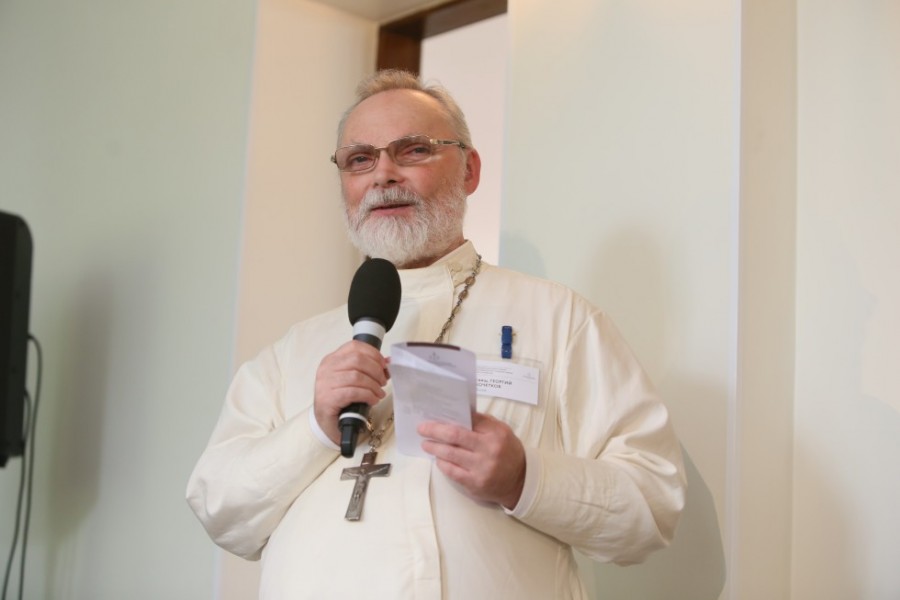
“Because we were thinking more about ourselves, we seem already to have slept through an opportunity for church renewal at the beginning of the 1990s, as we restored the church to her former splendour and influence upon the state, the people and the culture,” says SFI Rector Fr. Georgy Kochetkov. “We shouldn’t have put all our efforts into restoring church property. We might have helped the government with the property, but we shouldn’t have harnessed ourselves with this straightjacket, as doing this put us in a position of absolute dependence upon the powers-that-be, and this state of affairs continues, to this day. We should have remembered at that point, that at all times and in all places, the church’s number one task is the restoration of human souls.”
The guardian principle tends to divest the church of this task (the restoration of human souls) before any other. Under this guardian paradigm, Christ no longer says to Peter “get behind me Satan, you are a stumbling block to me”, when Peter tries to dissuade him from the way of suffering, and he no longer says to his disciples, “For whosoever will save his life shall lose it: and whosoever will lose his life for my sake shall find it.” He makes friends with the traders in the temple grounds and easily proves his innocence before the Sanhedrin and Pilate – all the judges are appeased and find a way to cooperate with him. This “modernized” gospel plot describes – perhaps not fully but in general – the Constantinian Era as an attempt to unite faith in God and in Caesar without sustaining any casualties. We can see, however, that this Era is now over, and that modern states count less and less upon any union with the church, even sometimes mounting hidden or open persecutions against Christians.
Fr. Georgy is sure that, “in the Post-Constantinian Era, when the church doesn’t enjoy government support, her strength needs to come from within. And this means that the freedom of the human spirit and the Freedom of God’s Spirit need to be manifest anew within the Church. The Orthodox, Roman Catholic, and various Protestant churches have all benefited greatly from the experience of community and brotherhood life over the last hundred years, and this brings us radically closer to each other. In our time, Christian communities and brotherhoods are called to support the “fallen tabernacle of David”, renewing the fullness of life within the Church and all her various ministries.”
To Serve God and…?
The 20th century was important not only in terms of its examples of personal holiness, but in terms of the martyrdom and confessorship of entire ecclesial communities, associations and brotherhoods. “This was a manifestation of love, which created a common life under conditions that were impossible for life, in human terms,” says Dmitry Gasak. “In seeing the achievement of one or another martyr, we mustn’t forget the church communities with which they were associated in solidarity. Martyrdom is not individual heroism – it has a personal and sobornal dimension.”
“Nikolay Leskov’s words are often remembered, about how Rus was baptised but never enlightened,” says Fr. John Erickson. “But now we can add that during the 20th c. the Russian church was baptized by the blood of its new martyrs. And their words and experiences have the potential of becoming the enlightenment of the Russian church.”
Adopting the heritage of the new martyrs implies the restoration of a “taste” for God’s truth and sensitivity to His revelation, as well as the ability of the church gathering to perceive, listen to and follow its prophets and teachers, past and present.
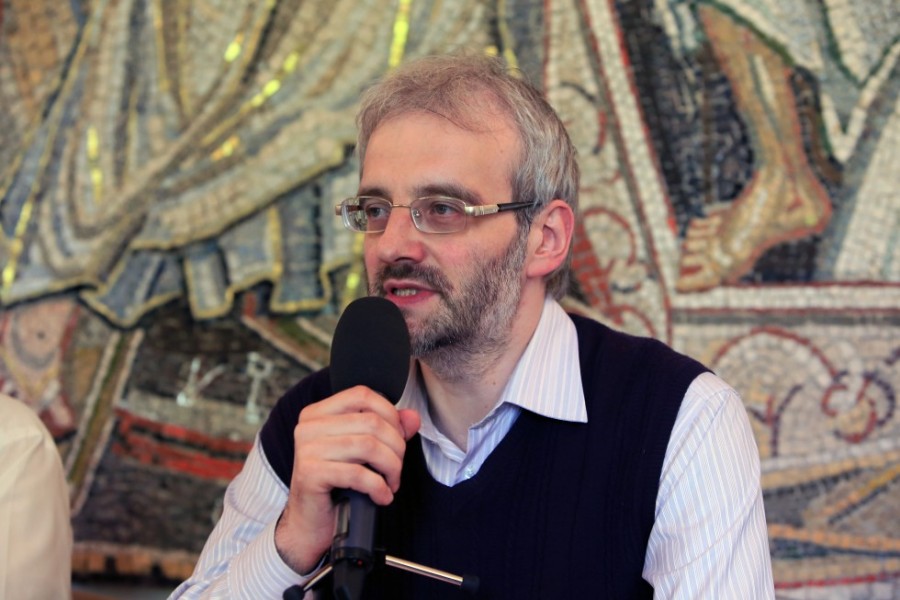
“At present we are afraid of teaching, and of prophecy – forgetting that from the very beginning Christianity set incredibly high benchmarks,” says the Head of the Scripture Faculty at SFI, Gleb Yastrebov. “The Gospel is filled with Old Testament allusions and references to Greco-Roman authors. The Apostle Paul, in a world in which 95% of the people were illiterate, doesn’t make any attempt to stoop to the level of his audience. We, too, need to return enlightened Christianity to the church, otherwise nothing at all will remain.”
At times it seems as if the coming of the Kingdom is a done deal and inevitable – almost automatic. Asking Christ whether he will find faith on earth when he returns seems more a rhetorical question than a real matter of enquiry – of course He’ll find faith, we think. All too often we forget that the coming of the Kingdom isn’t only God’s affair, but also man’s, insofar as God has linked his own hopes to mankind.
“At some point when I was examining would be seminarians, I started asking them, “why do you want to enter seminary?”, related one conference participant – a teacher at one of the seminaries. “To the honour of some of them, I can say that they answered, ‘to serve God.’ But when faced with the question of whom else they intended to serve, only one or two had anything to say.”
The St. Philaret’s Orthodox Christian Institute’s nationwide theological and research conference “Modern Orthodox Ecclesiology: The Church’s Service and Her Structure” was held from 13-15 May at the Transfiguration Centre for Culture and Education (Культурно-просветительском центре «Преображение»). 103 people took part in the conference, hailing from 26 cities from across Russia, the USA, Italy, Belarus, Latvia, and Moldavia. 18 diocese of the Russian Orthodox Church were represented, as well as the OCA and the Roman Catholic Church. 15 academic papers were given, and a round table discussion was held on the topic “Gathering in the Church as the Presbyter’s Ministry”.
Among the conference participants were representatives of the following commissions and institutes of higher learning: St. Vladimir’s Seminary (New York), The Theology Faculty in Milan, the School of Higher Economics of the Russian State University for the Humanities, the Saints Cyril and Methodius Institute for Postgraduate Studies, The Theological Institute of Belarus State University, St. John the Theologian Orthodox University, the Moscow Spiritual Academy, Kuzbassky Seminary, Tver State University, the Pirogov Russian National Medical Research University, the Synodal Biblical-Theological Commission and the Inter-council Presence of the ROC.
